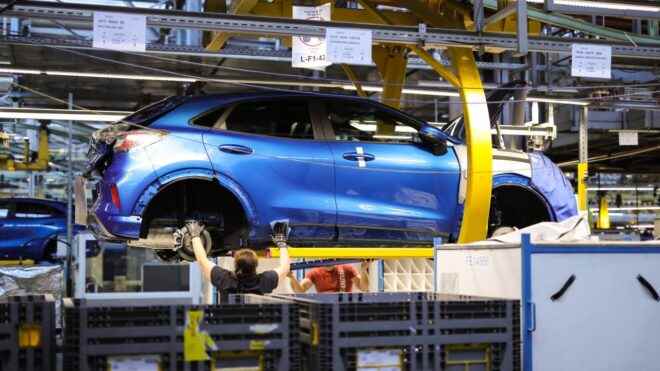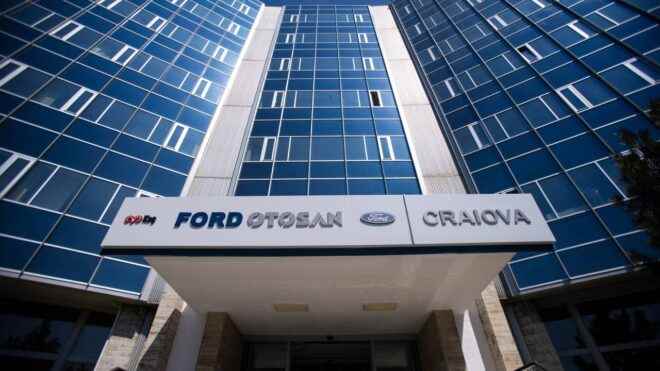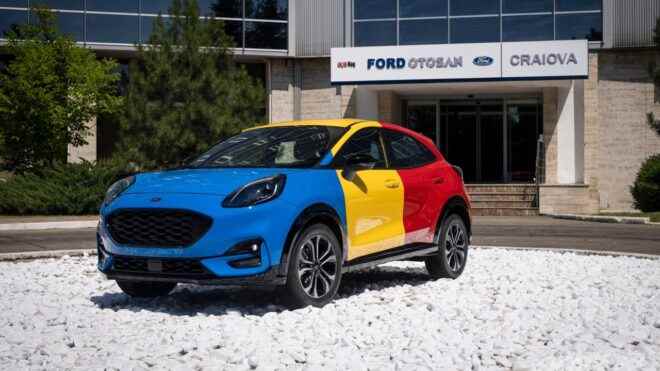Concrete steps have been completed regarding Craiova facilities, which is a new era for Ford Otosan and the first details of which were shared in March.
The factory transfer agreement between Ford Otosan, Europe’s largest commercial vehicle manufacturer, and Ford Europe, which was announced for the first time, has come to an end. Official sources, announcing the completion of the agreement regarding the transfer of the Craiova factory in Romania, also shared important information about the process that awaits us in the upcoming period. With the participation of Craiova in the production network, the experience and expertise of Turkey’s export champion Otosan in electrification and commercial vehicles is transferred to the facility in Romania; Ford Otosan, Europe’s commercial vehicle production leader, is also becoming an international automotive company. Having an important place in Ford’s electrification plan in Europe, Craiova’s production power will be combined with Ford Otosan’s extensive experience in commercial vehicle design, engineering and production. With this agreement, the Romanian plant will play an even stronger role in Ford’s electrification and commercial vehicle growth plans for Europe.
YOU MAY BE INTERESTED
An important period begins for Ford Otosan with the Craiova factory
Ford Otosan’s experience and know-how in electrification, which was riveted with Ford Europe’s first electric commercial vehicle E-Transit, which came off the production line this year, will also show itself in the electric vehicles to be produced in Craiova. With the inclusion of Craiova in the production network, the internal combustion van and combi versions of the new generation Courier, designed and engineered by Otosan, will be produced and put on the market in Craiova as of next year, while the fully electric versions of these will be produced in Craiova as of 2024. In addition, Ford Otosan will be responsible for the production of Ford Puma, which is currently produced in Craiova, and the new all-electric version to be commissioned in 2024. With the addition of these two vehicles to its product portfolio, Otosan will produce electric versions of the Transit, Transit Custom, Courier and Puma models at its 4 facilities in 2 countries.

YOU MAY BE INTERESTED
490 million euro investment
Ford Otosan is preparing to invest 490 million Euros, including engineering expenditures, in the next three years for the production of the new Generation Courier, which will start in 2023 in Craiova. The vehicle production capacity at the Craiova factory will increase to a total of 272 thousand units per year, and depending on the production plan, the new generation Courier production will reach up to 100 thousand and Puma production will reach up to 189 thousand units per year. Announcing that with the completion of the investment announced last year, Otosan will increase the capacity of the Kocaeli factories to 650 thousand vehicles, and with the addition of the capacity of the Craiova factory, it will be able to produce over 900 thousand vehicles per year.

Ford Otosan General Manager Güven Özyurt pointed out that Craiova’s production experience has moved to an international dimension as it is an important part of the production facilities network; “Electrification represents the most transformative change in our industry for over 100 years, and Europe, our important export market, is making rapid progress in electrification. Considering Ford’s recently announced European electrification plan and Ford Otosan’s extensive experience and knowledge in electrification, which started with the Custom PHEV and continued with the E-Transit, Craiova’s plans for electrification and commercial vehicle growth are more in line with Craiova. We believe it will play a strong role as well. Our Craiova plant will benefit from Ford Otosan’s extensive experience and know-how in commercial vehicle design, engineering and production. We look forward to adding new and even more exciting chapters to the success story of Craiova, one of the most productive Ford factories in Europe today.” made statements.
